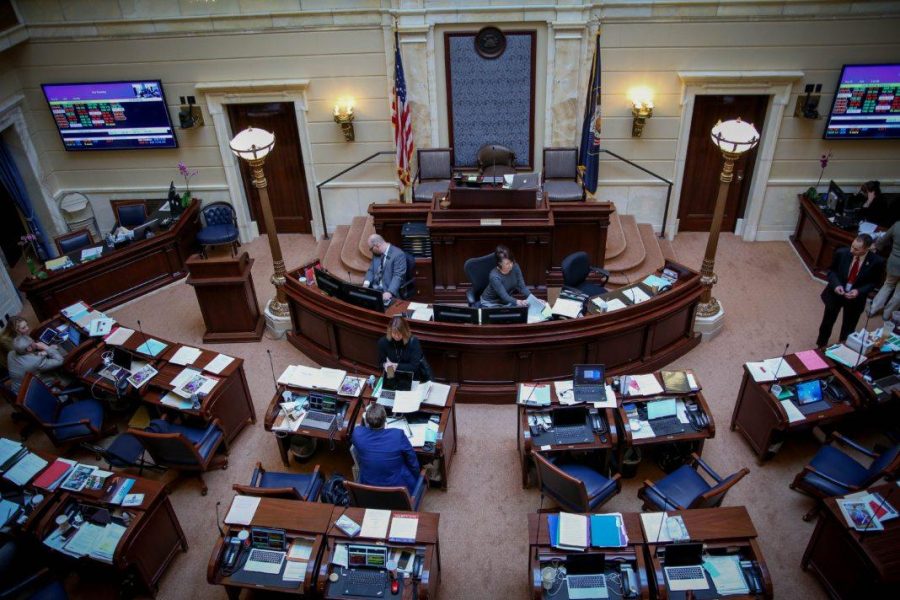Dalley: Utah Legislators Should Start Representing Average Utahns
Legislative meeting at the Utah Capital building in Salt Lake City, Utah on Friday, Feb. 23, 2018. (Photo by Cassandra Palor | Daily Utah Chronicle)
February 19, 2020
Utah legislators have been making it more and more clear how little respect they hold for the average Utahn. On Jan. 31, 2020, state Senator Lyle Hillyard tweeted, “A person working at a job that does not pay a livable wage really only has a hobby.” Compounded with the state legislature’s failed tax bill that would have raised the state sales tax on groceries, a pattern of disrespect begins to emerge. When talking about the tax reform bill, Governor Herbert even went as far as to say that voters simply did not understand the bill: “The belief that somehow we were going to hurt the poor became the rallying cry. … There were aspects of it that were good, not understood, and we didn’t do a good job of explaining.” Herbert and those that came out with similar statements have started to come off as disrespectful to those that they supposedly represent, especially the lower and working classes. If they don’t respect the working class — the people who would be most affected by an increase in sales tax on groceries — how the hell can we expect them to represent the whole state? Frankly, I don’t think we can.
If our representatives, who work for us, want to show us that they serve all Utahns and not just the upper class, they should start supporting progressive economic policies that could offer genuine support to the working class. For starters, they could increase the minimum wage above the federal rate to greatly benefit those that currently make less than a living wage that elevate us beyond our “hobbies” and perhaps put more food in our fridges.
It’s no secret that raising the minimum wage can boost the economy and benefit the lower class. And contrary to popular belief, the vast majority of those that would see the greatest benefits of a higher minimum wage are adults. The government’s neglect of the minimum wage has made it difficult for many American families today to make ends meet. A single parent working 40 hours every week and earning the Utah minimum wage would earn almost $2,000 less than the 2017 poverty threshold for a one-adult, one-child family. Of those that would be most affected by the increase, around 56% of them are women. One estimate says that almost 40% of all black workers and over 30% of Hispanic workers would receive a wage increase. If the U.S. had implemented a $12.00 minimum wage in 2018, 6.2 million people would not be in poverty. Even a small increase in the minimum wage would go a long way for the working class.
Legislators might be thinking that raising the minimum wage would hurt Utah businesses, and in some regards, this may be true. But the fact is that 40% of Americans are living just one missed paycheck away from being in poverty. Many Utahns, despite our strong economy, are also in that position. The previously proposed state tax increase on groceries would affect a substantial amount of Utah families, many of whom are already struggling. The tax reform bill was supposed to save Utahns $160 million a year, but at the cost of some citizens going hungry. Instead, the legislature should seek policies that would support every Utahn’s effort to feed themselves and maintain a safe place of living.
Characterizing the hard work of many Utahns as a “hobby” because of the legislature’s failure to curate policy that guarantees a living wage is callous and disrespectful. No representative should echo this sentiment if they intend to represent all of their constituents. A majority of Utahns didn’t like the legislature’s tax reform plan. It speaks to the disconnect between legislators and their constituents that so many legislators simply think the public would inevitably, undoubtedly agree with them if only they understood.








